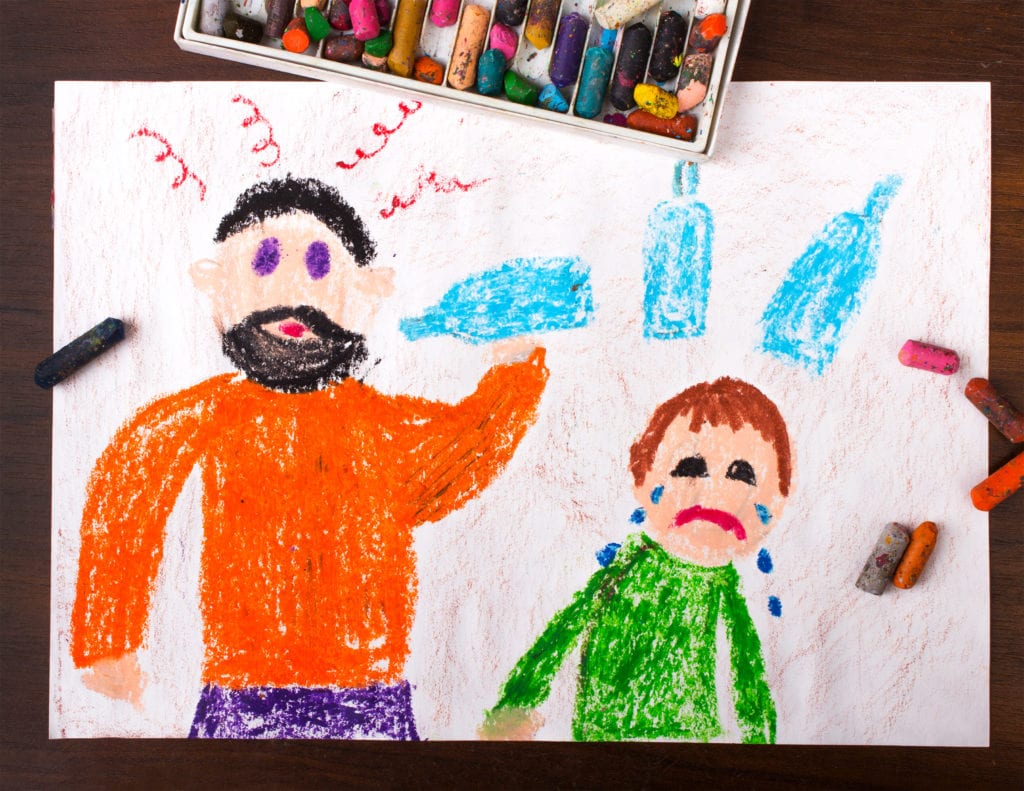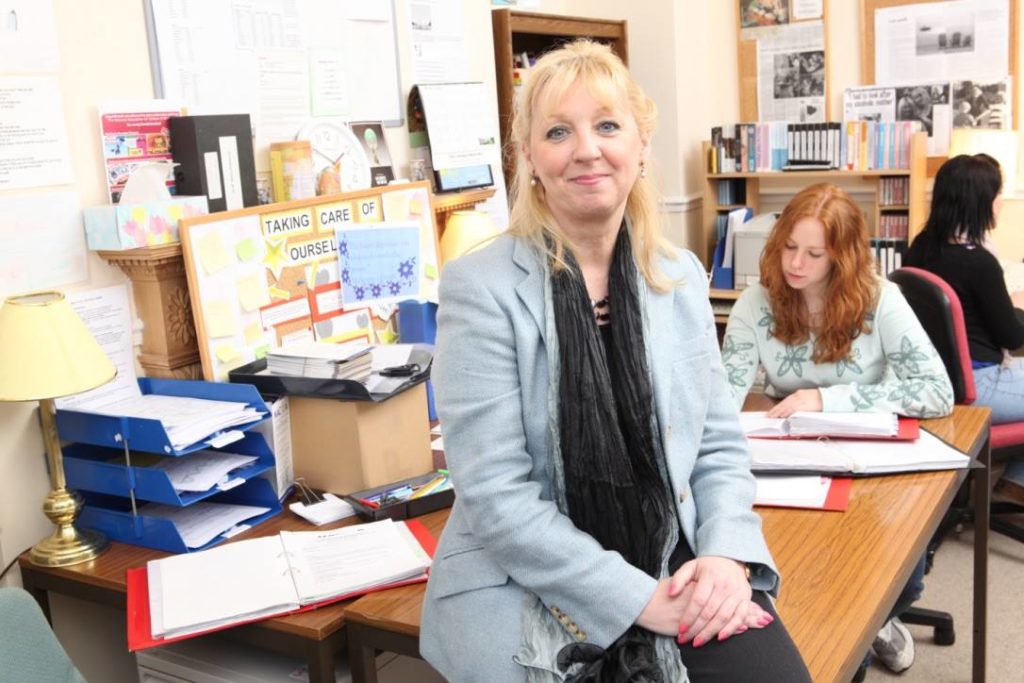This guest expert opinion is written by Hilary Henriques MBE from the National Association for Children of Alcoholics (Nacoa) UK.
Already in ordinary circumstances parental alcohol use can have serious consequences for children’s mental and physical health. For example, children from families with parental alcohol problems are six times more likely to experience abuse and violence in the home and as a new COVID-19 lockdown begins, and many of our vital public services have to be closed, these troubled families and their children have been left to fend for themselves with many of their safety nets, like school having been sharply withdrawn.
Imagine what the lockdown feels like for children with parents who are consuming more and more alcohol and with nowhere to go; no escape.
My parents have been drinking more alcohol as things become more uncertain.”
A child from a home with parental alcohol problems
In the run up to the first lockdown in the UK there was an increase in contacts from professionals and other agencies who, knowing their services would close down, wanted the children who ordinarily rely on them to have access to help and support.
It’s hard to focus on anything else when Covid-19 is so prominent in the media. I am more isolated than ever and a lot of my support services have stopped.”
A child from a home with parental alcohol problems
There’s been an increase in ‘dropped calls’ when someone calls and hangs up. Lots of children tell us that they ‘tested us’ before speaking. They needed the prove that we are trustworthy and would be here – not ‘being cut’ as so many services have been over the last decade and those who had to close their doors due to COVID-19. Sometimes, they lose ‘courage’ and hang up but tell us later that they liked hearing a ‘friendly voice’ – it’s a bit like a trial run before they feel ready to talk.
Everything seems to be shutting down, it’s all really unsettling.”
A child from a home with parental alcohol problems
We experienced ‘the Christmas phenomenon’ where calls in the lead up to Christmas and New Year decrease and we see a steep rise in calls in early to mid-January. This is ‘a triumph of hope over experience’ thinking, which children from families with parental alcohol problems are very good at.

They often thrive in a crisis, because they live with chaos, although the emotional energy it takes for children to take on responsibility for their parent’s crisis and attempt to step into the parental role for younger siblings is harmful in both the short and long term. But when the crisis becomes the new norm, the slow realisation that nothing’s changed, the disappointment sinks in and anxiety and depression ensues.
Lockdown has made my current situation unmanageable. I am in lockdown with both parents who drink too much alcohol and my dad is becoming more aggressive.”
A child from a home with parental alcohol problems
Our telephone and email helpline has been open throughout the first lockdown and calls we received from children doubled in the weeks of June, with many more children and young people calling who miss their routines which provide them with some sort of stability and get them out of the house. The helpline supports them by being here, being consistent and not judging them or their parents.
Nos of helpline calls/ e-mails (only) – months April and to May 23, 2020
| April 2019 | April 2020 | May 2019 | May 2020 |
| 609 | 715 | 515 | 899 |
We’ve seen an increasing number of calls from children whose parents have started to consume alcohol again and we know that there has been a steep rise in alcohol sales.
Dad’s drinking alcohol again, it’s my worst nightmare come true. He blames the Coronavirus which has messed things up for him.”
A child from a home with parental alcohol problems
Callers are talking about living with increasingly unpredictable behaviour, being abused or ignored, witnessing aggression between family members, feeling frightened on a daily basis in their own homes, feeling trapped.
Coronavirus led to me being at home more and my mum’s alcohol use is worse than ever. I am so isolated and she is very violent, I don’t know where to turn.”
A child from a home with parental alcohol problems
Many talk about feeling anxious and fearful; some have taken on the responsibility of looking after younger brothers and sisters. We have children looking after babies and their fear of not being able to cope can be overwhelming and have lasting effects on their mental health.
I feel that I can usually deal with everything on my own but lockdown has made things unbearable and I’m struggling to cope.”
A child from a home with parental alcohol problems
Without support these children’s need for attention and affection go unmet and as lockdown continues, these needs are repressed and denied. Nevertheless, they don’t go away and seeking to satisfy them is acted out through eating problems, an exaggerated need to control, self-harm and alcohol use as a means of coping.
Covid-19 affects everything, I drink alcohol with mum now, it’s the only good times we have.”
A child from a home with parental alcohol problems
Callers are also talking about financial worries, no money for food because mum and dad are stockpiling alcohol, just in case the shops run out.
The whole Coronavirus situation has led to her ordering huge crates of beer and wine. There is no escape and I’m more trapped than ever.”
A child from a home with parental alcohol problems
It’s clear that lockdown with parents who have an alcohol problem, is having a profound effect on their children’s mental health. Lockdown has amplified their problems so that their tenuous hold on life is stretched to the limit and many come to us feeling unable to cope, not wanting to go on and feeling guilty for ‘telling on their parents’.
However something as simple as a chance to talk about anything and everything to someone who understands, a kind voice, can make all the difference.
Some children have a parent who guides them to Nacoa. I have just had a call from an 8 year old. She has been reading ‘Jasper’s Wish’ and loves the story with the Nanas, knowing that she is not alone.
She has been drawing on the ‘Imagination Garden’ and enjoys being able to use her imagination to do lots of colouring. It has helped her calm down when in a bad mood after thinking about her dad’s alcohol use problems.
Hearing the stories of children from families with parental alcohol problems is important. Seeing these children and giving them a chance to feel heard and seen can be life saving. And providing psycho-social support can mean a lifeline for vulnerable children. As we enter the second lockdown in the UK, I think we must bear witness to children’s reality and circumstances and provide as much support and relief as we can.
That’s why I’m so proud of our “Lockdown Nell” – a story resource for everyone affected by their parent’s alcohol use during lockdown.
More Resources to Support Children
- Nacoa UK’s Resource Pack for children from families with parental alcohol problems: Access for free here.
- “You are not alone” Lego video: Download for free here.
About Our Guest Expert

Hilary Henriques MBE
Hilary is Chief Executive of Nacoa with responsibility for the Charity meeting operational objectives and financial obligations, as well as continuing an active role in Helpline work.
Hilary co-founded Nacoa in 1990 while working at St Joseph’s Centre for Addiction in Surrey where she championed the need to address addiction as a family illness.
In 30 years she has changed the way the government and the world views children affected by their parent’s alcohol problems.
She was awarded an MBE in the 2005 Queen’s Birthday Honours List for her work with children and families and was elected a Fellow of the Royal Society for the Arts in 2008.
In 2010 she was highly commended by The Beacon Fellowship in recognition of her outstanding contribution to charitable and social causes in the category of leadership.
In 2015 she was named in the Independent’s Happy List celebrating Britain’s unsung heroes and heroines.